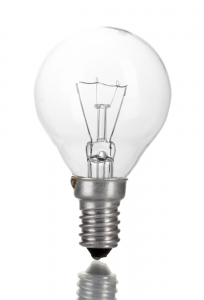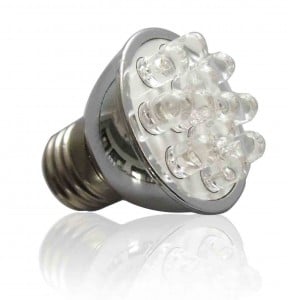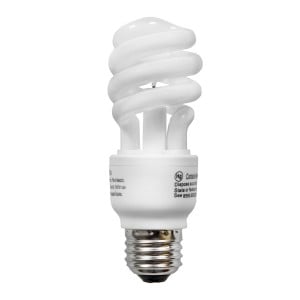In the 19th century, the only type of bulb available was the incandescent light bulb. This bulb was “the biggest thing since sliced bread” and incredibly effective at its job. Unfortunately for the light bulb, the business world seems to continuously search for improvements or replacements of the once great predecessor. Today, the incandescent light bulb seems like an antique compared to the variety of light bulbs available. Consumers can choose now choose from incandescent, fluorescent, halogen, HID (high-intensity discharge), and LED (light emitting diodes) light bulbs. Each light bulb usually provides a longer life and brighter light than their respective predecessors. Consumers also now have the option to choose from a variety of light types (i.e. warm, cool, natural) and whether they dim or not. At a certain point, a consumer can be quickly flooded with and drown in the massive amount of information and options of light bulbs.
At this point, someone may be thinking to themselves “why should I care about light bulbs?” I’ll admit that when considering a single light bulb the selection of said bulb would not save someone or a company millions of dollars, but an impact will be evident. The average person, especially not a company, does not utilize a single light bulb. Let’s consider an average home to use for as example: three bedrooms, two bathrooms, one kitchen, one dining room, etc. Each room requires at least one lighting fixture, and each fixture uses three light bulbs (if we stay on the conservative side). All these rooms and fixtures amount to a possible minimum of 30 light bulbs.
|
LED |
Compact Florescent |
Incandescent |
|
|
Price per bulb |
$ 35.95 |
$ 3.95 |
$ 1.25 |
|
Life Span |
50,000 Hours |
8,000 Hours |
1,200 Hours |
|
Kilowatts per year |
329 |
767 |
3,285 |
|
Annual Oper. Cost |
$ 32.85 |
$ 76.65 |
$ 328.59 |
Now imagine the impact this has over the possible minimum of bulbs established earlier. Although a single light bulb, or even light bulbs in general, might not seem to have a large impact on finances, this myth is quickly proven false. Buildings owners, whether residential or commercial, must take into consideration the price of and the operating costs of light bulbs into their expenses. This affects large buildings even more because of the massive amount of light bulbs in use at any given times. The light bulb is no longer solely symbolic of an idea and can now come to represent money, or $$$.
How could something so small and seemingly insignificant come to have such a large impact on the financial aspect of households and businesses? Should the government require homes and businesses to replace current light bulbs with more efficient ones? Would the requirement even be worth the hassle?
http://business.time.com/2013/05/09/long-live-the-lightbulb/
http://www.energystar.gov/index.cfm?c=lighting.pr_lighting_landing




